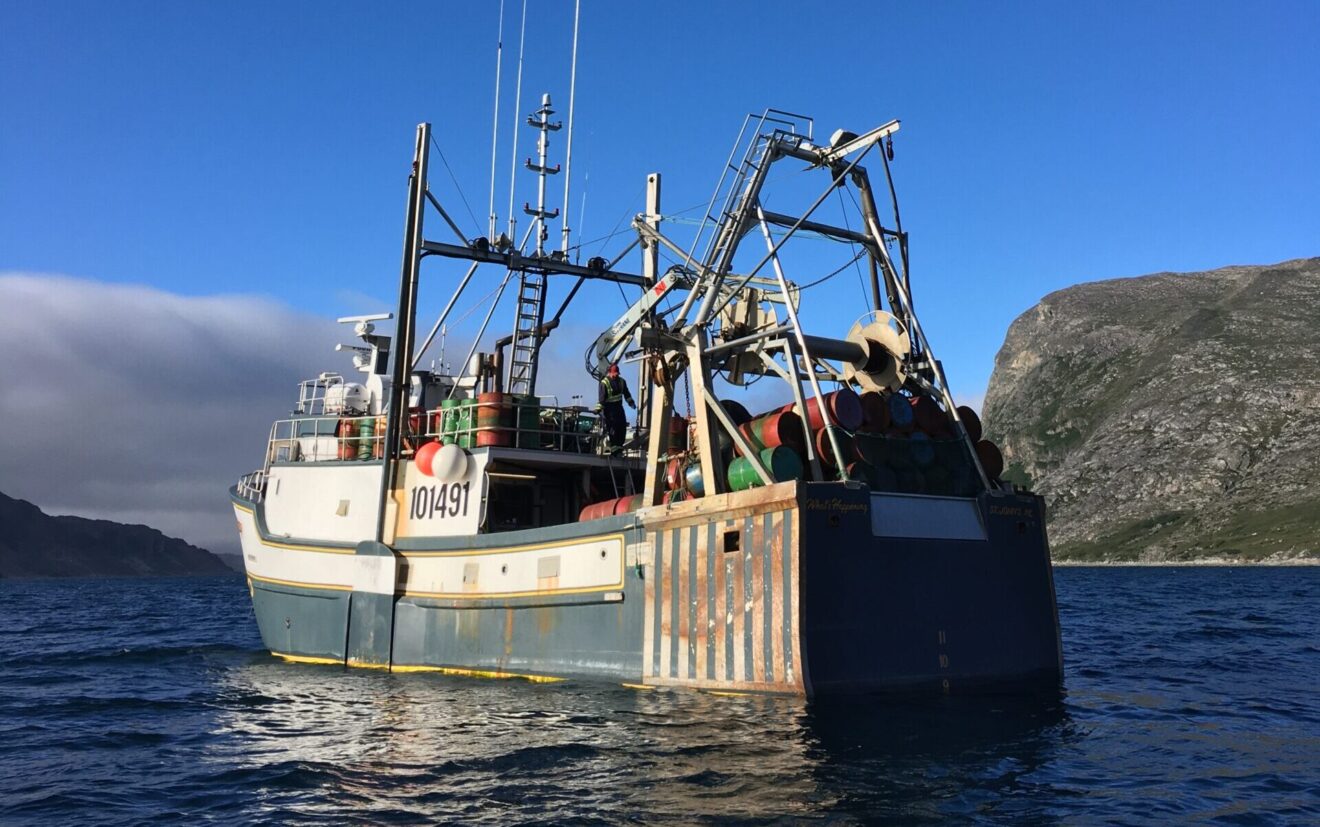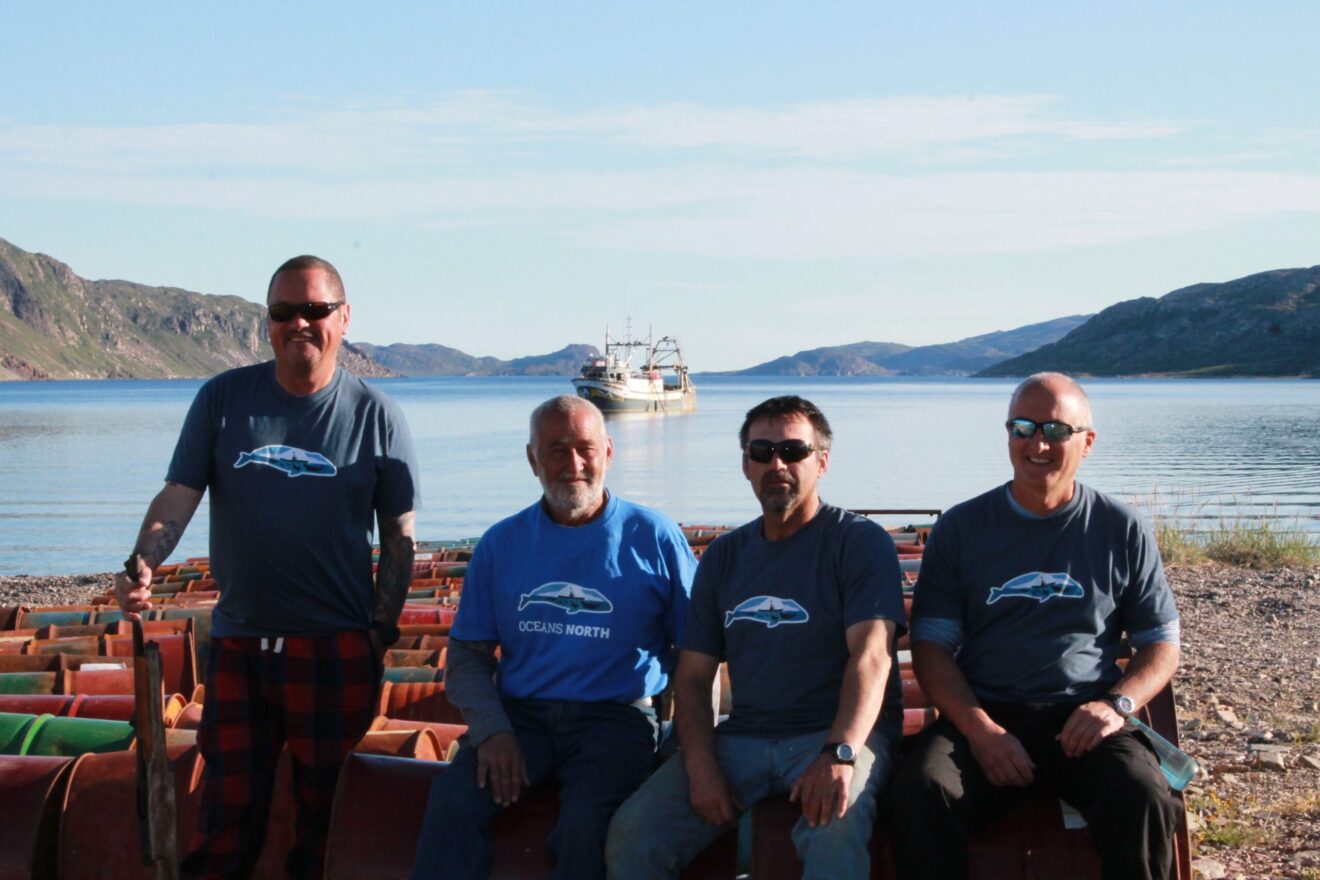
Fuel Drum Cleanup Helps Protect Torngat Mountains Base Camp and Research Station
Fuel Drum Cleanup Helps Protect Torngat Mountains Base Camp and Research Station
Alex Tesar | September 15, 2020
Last month, more than 600 used fuel drums were successfully removed from the Torngat Mountains Base Camp and Research Station, also known as Kangidlusuak. The project was a collaborative effort between the Nunatsiavut Government, Parks Canada, Nunatsiavut Group of Companies, Air Borealis and Oceans North. The drums were loaded onto the longliner What’s Happening out of Nain and transported to Happy Valley-Goose Bay.
Last month, more than 600 used fuel drums were successfully removed from the Torngat Mountains Base Camp and Research Station, also known as Kangidlusuak. The project was a collaborative effort between the Nunatsiavut Government, Parks Canada, Nunatsiavut Group of Companies, Air Borealis and Oceans North. The drums were loaded onto the longliner What’s Happening out of Nain and transported to Happy Valley-Goose Bay.

Image – An aerial view of the Torngat Mountains Base Camp and Research Station before and after a cleanup of over 600 used oil drums.
Credit – Sid Pain/Oceans North
The rugged peaks of the Torngats rise some 200 kilometres north of Nain, the northernmost community in Nunatsiavut. Given the region’s remoteness and challenging landscape, the park’s staff and researchers rely on helicopters and boats for travel and diesel generators for electricity. That has led to a growing pile of fuel drums and other hard-to-dispose-of garbage. Last year, the base camp received its first fills for bulk storage tanks of gasoline, diesel and jet A fuel, but the used drums remained, creating not only an eyesore but the potential to pollute the land and marine ecosystem.
August would normally be a peak time for tourism in the park, but the pandemic put a halt to travel, providing a perfect moment to deal with the problem.
“While COVID-19 has impacted a lot of things negatively this year, this created an opportunity for the Nunatsiavut Government and its partners to concentrate on the cleanup,” says Belinda Webb, Nunatsiavut’s deputy minister of the Department of Language, Culture, and Tourism.
Oceans North provided logistical support and funding for the drums to be transported, cleaned and disposed of in Happy Valley-Goose Bay.
“We committed our support to the Nunatsiavut Government to assist with the cleanup,” says Sid Pain, Arctic projects director for Oceans North. “Despite COVID-19 being a challenge this year, the partners developed a safe and effective strategy to get the work done.”

Image – Members of the Oceans North team preparing to load the used oil drums onto a boat for disposal in Goose Bay.
Credit – Belinda Webb
The clean-up also offered an opportunity for Nunatsiavut-based staff from Oceans North to work together for the first time. Over the last year, three community members have been hired to help assist with projects in the region, all of whom have extensive experience on the land. Joe Webb, Derek Pottle, and Tom Lane traveled up to the park with Pain by Zodiac—a seven-and-a-half hour journey along Labrador’s north coast.
On the way there, Pain said he was privileged to hear stories about every place (and creature) they passed. Partway through the trip they came upon an enormous polar bear on a small island.
“The guys were saying, “he’s going to go up on the point, but if he’s saucy and not afraid, he’ll get in the water,” says Pain. Sure enough, the bear descended into the water near the group. The Zodiac, which was decidedly not bear proof, remained at a respectful distance.

Image – The used oil drums loaded aboard the longliner What’s Happening.
Credit – Sid Pain/Oceans North
Once they arrived at the park, the Oceans North team got to work. Although their main task was removing the drums, they also provided a diverse skill set, ranging from plumbing to bear-guarding to site remediation. This region is familiar territory for Pottle, who used to hunt caribou in the area and was on the management board when the park was first developed. Webb, who spent over 30 years fishing, hunting and touring along the coast nearby, also knew the area well. While Lane has spent his life on the land and water in Nunatsiavut, he had never ventured as far north as the Torngats and was totally amazed at the sheer beauty and scale of the land. In the end, the team was able to complete the work ahead of schedule.
“This project has helped to reduce the environmental footprint of the base camp and improved the optics for those privileged to experience this amazing land,” said Pain.
Alex Tesar is a communications specialist with Oceans North.
